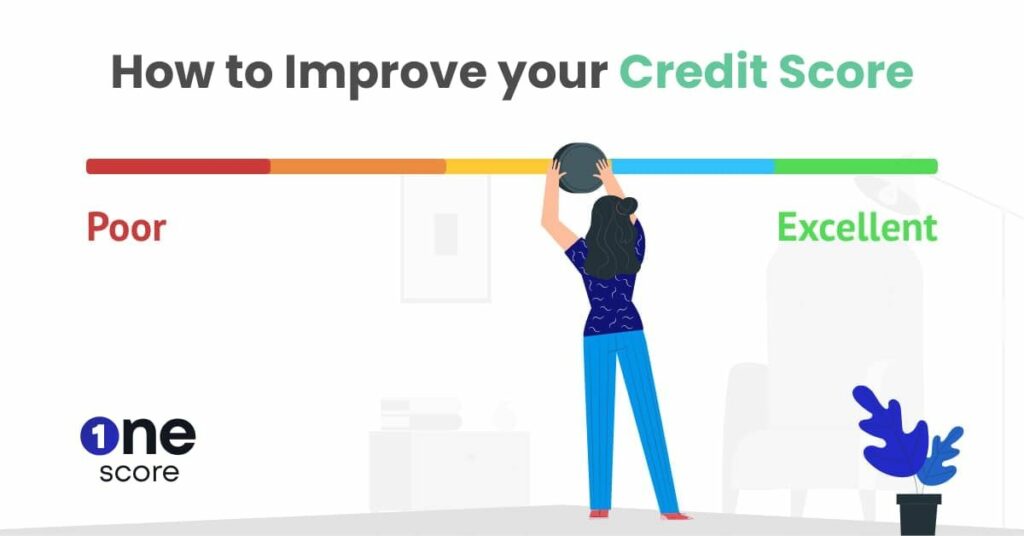Having a financial counselor is not just for the affluent. Professional financial planning services are useful for people of all financial standings. Retirement planning, debt reduction, investment diversification, or simply stretching your income farther are all areas in which a financial advisor can be of service.
Learn how to choose a financial advisor, from figuring out what kind of guidance you need to what questions to ask potential candidates, in the following text.
The Right Financial Advisor: 6 Steps to Take
- Identify why you need financial advice
- Find the best financial advisor for you
- Know how financial professionals get paid
- Determine whether you need a fiduciary financial advisor
- Search for the financial planning you need
- Meet potential financial advisors or brokers
Step 1: Identify why you need financial advice
If you know why you need a financial advisor, you can start looking for the correct one. Do you want to know how much and how to invest for your future financial objectives but are just starting out in your career? Are you going through a divorce or trying to cover your child’s college expenses? You may probably find a consultant who specializes in your area of need.
It’s fine to have more than one financial strategy in place. If you’re looking for help with your finances, make sure the professionals you consult have the expertise to meet your demands.
You may seek assistance from financial consultants with the following issues:
Financial advisor services | How a financial advisor can help |
| Retirement planning | A financial advisor can ensure you’re maximizing retirement-specific tools like your 401(k) or Roth IRA so you can maintain your lifestyle after you retire. |
| Paying down debts | A financial advisor can evaluate your debts and create a repayment plan for you to follow, so you can prioritize those that should be paid down first and save money on interest in the long term. |
| Investing | Financial professionals can recommend specific products that make sense for your investment strategy. They can also help you rebalance your portfolio — for example, by moving you from stocks to relatively safer options like mutual funds or ETFs — to ensure it matches your level of risk tolerance. |
| Tax planning | The right financial expert can help you limit your exposure to taxes as you work toward other financial goals. They may evaluate your withholdings and suggest adjustments, if necessary, to help you get more money on payday. |
| Budgeting and saving | A financial advisor can pinpoint opportunities to help you reduce expenses. They can come up with a budget so you can use or save money more efficiently. |
| Getting insured | Whether you’re looking for home insurance, life insurance or even annuities, a good financial advisor can help you find the product that best fits your needs — and point out any holes in your coverage. |
| Estate planning | Financial advisors can help get your important paperwork — such as wills or revocable living trusts — in order. Advisors can also help you identify people to make decisions when you can’t, like a healthcare proxy and an executor. |
Step 2: Select the Most Appropriate Financial Advisor
A financial advisor is a trained professional who advises clients on how to best handle their money, taxes, investments, and other assets. Numerous credentials for experts in the field of financial planning are available.
Some financial advisers operate as coaches, guiding their customers as they make important financial choices and imparting knowledge on how to better manage their money. Some people focus exclusively on providing high-level portfolio management services, including doing stock and bond trades on their clients’ behalf.
You are welcome to read any of the following additional articles about finances, the links to which are provided below:
- Monitoring Your Checking Account: How Often Should You Do It?
- How to Get Late Payments off My Credit Report?
The most common varieties of financial advisers are as follows:
Investment advisers
- Personalized investment advice based on market knowledge
- Regulated by the SEC and state securities regulator
- No financial planning offered
- The significant financial investment required for securities
Financial advisors can either freelance or join a firm. They analyze the current market climate and formulate an investment strategy tailor-made to your specific needs and objectives. Advisors charge a fee to provide guidance on trading equities (stocks) and debt (bonds) in particular markets.
Both the SEC and a state securities regulator require an investment adviser to be registered with them. Investing professionals can be classified as either asset managers, investment advisors, wealth managers, or portfolio managers.

It’s important to remember that the “e” in “financial adviser” is there on design, rather than an “o,” to distinguish between those who are and are not subject to legal regulation. There is no universally accepted legal definition of the phrase, thus it should not be confused with a financial advisor, which has a broader meaning and typically refers to brokers.
Stockbrokers
- Handles buying and selling of investments
- Regulated by Financial Industry Regulatory Authority (FINRA)
- May recommend unsuitable investments
- Only full-service stockbrokers offer financial planning
Stockbrokers act as their clients’ agents in the purchase of stocks and bonds. Brokers work for brokerage firms, where they facilitate deals for both individual and institutional clients.
Certified financial planners
- Holistic, long-term approach to financial planning
- CFPs who give investment advice are regulated by the SEC
- Fees could outpace returns on small investments
- Not all CFPs are fiduciaries
By considering retirement and investment goals, insurance, taxes, and more, CFP Board-certified financial planners help clients develop comprehensive strategies for long-term asset management. They deal with both one-on-one customers and groups, such as local businesses.
Robo-advisors
- Lower-cost financial advisor option
- Hybrid advisement with personal interaction is possible
- Without personal interaction, advice may be less personalized to your financial needs
Robo-advisors are online services that help you manage your investments and make decisions based on algorithms and information about your financial situation and aspirations. In practice, many advisors employ a hybrid approach that includes both digital and human elements.
Less money may be spent on a robo-advisor than on a human one. However, there are many who are skeptical of robo-advisors because they claim they cannot provide the individualized risk management that humans can.
If you’re interested in this inexpensive route, experts advise going with a hybrid model like Schwab Intelligent Portfolios Premium or Vanguard Personal Advisor Services, where you can take advantage of both a robo-advisor’s ease of use and low fees and a human advisor’s ability to customize your investment plan.
Estate planning
- End-of-life planning ensures financial health of your loved ones
- Proper estate planning can save you money on fees such as taxes and court costs
- You’re responsible for informing your estate planner about changes to beneficiaries or your financial situation
It’s easy to put off making a will or other arrangements for your loved ones after your death, but doing so is essential. A financial planner can assist in the preparation of legal documents such as a will or a revocable living trust. Your advisor can also assist you choose a health care proxy and an executor to act on your behalf if you become unable to.
Establish the necessity of a financial strategy. It’s fine to get multiple varieties if necessary. Then, you should check the credentials of any potential financial advisors to ensure they can actually help you.
Step 3: Learn the Compensation Structure of the Financial Sector Fees for financial services may vary depending on a number of factors, including the value of your assets and the nature of the assistance you require.

Traditional advisors
Don’t be shy about asking your advisor how they get paid; they may charge an hourly rate, a percentage of your assets on a yearly basis, or a combination of the two. Alan Rosca, a lawyer specializing in securities law, notes that “different payment structures might create different incentives.”
It’s true that “if somebody is paid only to sell investments, it means if he doesn’t sell you anything, he doesn’t make any money.” Traditional financial advisors can earn money for their services in the following ways:
Wage per hour: Advisors could be compensated in the same way that an attorney would be: by the hour. SmartAsset, a website offering free financial guidance, reports that hourly prices range from $100 to $400.
Monthly or yearly rate: The annual fee charged by your financial advisor may range from 1% to 2% of your total assets. For this reason, if you have $100,000 in assets, you will be required to pay between $1,000 and $2,000.
Commissions: Commissions on the purchases of the advised financial goods are possible for advisors.
Fixed rate: For comprehensive financial planning services, such as those provided by financial advisors, the fixed price could range from $1,000 to $3,000.
Retainer: A financial counselor may charge you on a monthly, quarterly, or yearly retainer basis if your financial position is particularly complicated. Since payment is not tied to the value of the client’s portfolio, potential conflicts of interest are reduced and advice is prioritized.
Dual fee systems are used by certain financial advisors. A financial advisor could charge clients a fee for their services and also earn commissions on the sale of additional goods.
Pick an hourly rate advisor if you need help with a specific issue but don’t want to create a long-term connection that involves investment management.
You can read more financial articles by following the links provided below:
Robo-advisors
Robo-advisors are an attractive option because of their low cost. Some of the greatest robo-advisors don’t require any minimum investment to open an account and offer annual management costs as low as 0.15%.
Traditional advisors may be able to notice nuances and make stock moves depending on your personal needs, whereas robo-advisors rely on the information you provide to make broad recommendations through an algorithm, according to critics.
However, many first-time investors working with smaller budgets have found robo-advisors to be an excellent resource.
Step 4: Figure out if a fiduciary financial advisor is necessary.
It’s reasonable to assume that all financial advisors will prioritize their clients’ interests and steer clear of potential conflicts of interest.
What is a Fiduciary?
Financial advisors are held to the fiduciary standard of care (sometimes called “fiduciary duty”), which mandates they put their customers’ interests before their own, even if doing so means proposing tactics that could lower the advisor’s remuneration.
It’s important to note that while many people use the term “financial advisor,” only those who meet certain criteria are required to act in clients’ best interests. Despite a recent rule that was meant to improve these requirements, registered investment advisors have this obligation but critics argue brokers do not.
When employing a financial advisor to make investment and product decisions on your behalf, it is most important that they adhere to the fiduciary standard. This is probably not as pressing of an issue if your only goal is to create a monthly budget.
In either case, it’s important to feel comfortable asking a prospective financial advisor if they operate under the fiduciary standard. Inquire about their pay structure as well. After all, it’s your wealth and future earnings that are at risk.
Step 5: Look for the Appropriate Financial Planning Assistance
Alan Rosca makes light of the fact that some individuals will go to great distances to find the lowest prices on gas, appliances, and other necessities. They will spend a great deal of time at auto lots before making a purchase. But they’ll use a search engine to identify a good financial planner.
“We should spend the same amount of time before we give somebody our hard-earned money,” he says. While there’s always the internet, there are more targeted options for finding local financial advisors:
BrokerCheck
The Financial Industry Regulatory Authority (FINRA) runs a service called BrokerCheck. Researching a potential advisor’s background can reveal whether or not they have ever been disciplined.
Investment Adviser Public Disclosure (IADP)
An individual or business claiming to be a Registered Investment Advisor (RIA) can have their credentials verified through the SEC’s Investment Advisors Disclosure Project (IADP) website.
NAPFA is the National Association of Financial Planners.
In the financial planning industry, NAPFA is the professional organization to join. (Instead of earning commissions, fee-only advisors receive a set salary.) Their “Find an Advisor” feature makes it easy to locate trustworthy local advisors.
Step 6: Meet potential financial advisors or brokers
Start making phone calls and scheduling meetings with prospective advisors once you’ve narrowed down your list to those that match your needs. Don’t be shy about asking your financial advisor any questions you may have, such as those about their experience or compensation. Remember that you are risking your retirement funds.
Financial Advisor | Financial planner |
| May cover a broad range of services, including those of a financial planner, plus others, such as tax advice, investment portfolio management, financial planning, insurance products | Typically only provides financial planning, e.g., analyzing budgets, short and long-term financial goal-setting, retirement savings plans, estate planning |
| Works with individuals, businesses | Works with individuals, businesses |
| Some common certifications include Certified Financial Planner (CFP), Certified Public Accountant (CPA), Chartered Financial Analyst (CFA), Certified Investment Management Analyst (CIMA) | Regulated by the CFB Board, most common certification is Certified Financial Planner (CFP) |
| Variety of fee structures, including commissions on financial products, flat fees and percentage of assets under management (AUM) | Rates are usually hourly or flat fee |
COVID-19 and Investment Counselors
Before the Covid-19 outbreak, financial advisors still spent a lot of time meeting with customers face to face, and the vast majority of their counseling was done that way. Professionals were forced to rely on video chats due to the rise in the number of clients who needed counsel while they were on stay-at-home orders.
Video conversations and other digital modes of communication are expected to remain in place even after a return to normalcy, even though face-to-face discussions with financial consultants have resumed as the pandemic has slowed.
Many financial advisory firms and independent experts are expanding their online presence and service offerings, making it simpler for consumers to discover and hire a financial advisor online.
The Fiduciary Standard Isn’t Always Simple
It’s not always black and white whether or not a financial advisor has to follow the fiduciary standard, which states that they have to put their clients’ interests before their own. Advocates for consumers’ rights have been calling for a uniformly high fiduciary standard for years. However, they are dissatisfied with the progress that has been achieved to better safeguard individual investors.
2019 saw the official start of the SEC’s new Regulation Best Interest (Reg BI). According to the new code of ethics, brokers and financial advisors must do the following.
- Never push products on a customer until you’re sure they’ll benefit from them.
- Specify the broker-dealer’s potential conflicts of interest and financial incentives.
What’s wrong with this new rulemaking? James Watkins, an attorney and managing member of InvestSense, claims that the SEC failed to provide a clear definition of “best interest.” As a result, it does not provide as much security for investors as a real fiduciary regulation would.
However, according to Watkins, this lack of clarity “only serves to create unnecessary uncertainty and unnecessary risk exposure for both advisors and investors,” despite the SEC’s claim that it will be determined on a case-by-case basis.

How do you Protect your Best Interests?
According to Barbara Roper, director of investor protection for the Consumer Federation of America, the best way to protect yourself is to choose a financial analyst who voluntarily minimizes the conflicts of interest in their business model and voluntarily adheres to a fiduciary standard higher than what the SEC enforces.
Look for advisers who have earned the CEFEX accreditation, which verifies that they have met a real fiduciary standard through auditing.
It’s also possible that brokers and advisors have distinct compensation plans. Products that are just fine for you (and will offer them a greater commission) but aren’t the best for you could be how they make a profit.
Don’t be afraid to inquire about fees while meeting with potential advisors. In addition, Watkins suggests inquiring as to whether or not the advisor you’re considering is “open architecture” or “closed architecture.”
With an open architecture, your advisor is free to pitch you on anything. However, in closed architecture, the advisor is restricted in the investments they may sell due to financial ties to the investment’s promoters, such as a mutual fund’s manager.
Perhaps the best course of action is to look for someone who supports “open architecture,” and to prioritize working with advising firms that are fee-only, meaning they are paid for their services solely by the client.
The Best Way to Protect Yourself From Scams
Con artists might appear more credible by posing as legitimate professionals in the field of finance. You can examine a potential advisor’s registration status with the Securities and Exchange Commission and the Financial Industry Regulatory Authority (FINRA) through search tools like Brokercheck and the Investment Advisors Disclosure Program (IADP), respectively.
While it is possible for “real” registered financial advisors to commit investment fraud, this is not a guarantee. Knowing what constitutes fraudulent activities and what red flags to look out for is important even if you are meeting with an advisor who appears to have a genuine practice.
A legitimate, trustworthy financial advisor will:
- Any potential conflicts of interest should be disclosed in full.
- Establish reasonable financial goals (rather than overly optimistic projections of massively superior returns).
- Provide a reliable estimate of the dangers inherent in each investment
- Take care of yourself first and foremost.
Steer clear if you notice any of the following:
- Pushy sales techniques
- Words like “breakthrough technologies” and “once in a lifetime opportunity”
- Unlicensed salespeople posing as brokers calling potential clients on the cold
- Investment opportunities that seem too good to be true in unsolicited emails
- Failure or reluctance to provide written investment information
- Investment opportunity advice that must remain “confidential”
- Decisions must be made quickly under pressure
Watch Out for These Common Investment Frauds
There is a risk of encountering fraud when searching for investing options. The urge to invest or receive unsolicited advice are two warning indicators of a possible fraud. Investment advice found in online communities, message boards, or newsletters should be treated with extreme caution.
If someone is trying to sell you investment items, they better have a clean record. Investor.gov allows you to research a company or person and learn about their background, including any legal actions taken against them.
Relationship Fraud
This con takes advantage of the close bonds that form within communities of common interest (ethnic, religious, professional, senior, etc.). Scammers often target well-respected community members in the hopes of convincing them to invest in their scheme.
It turns out that the investment is a Ponzi scam most of the time. When people finally catch on to the scheme, all the money has already been spent. No matter who provides you with an investing idea, you should always exercise caution and conduct rigorous research.
Churning
Your broker engages in excessive trading and selling in an effort to maximize commissions at the expense of your best interests. Any unusually high or frequent fees in your portfolio, as well as any prohibited trading, could be indicators that your broker is engaging in fraudulent activity. Keep in mind that variable annuities have high fees and are often recommended by brokers who are looking to increase their compensation.
Promissory Notes Fraud
It is acceptable to put money into promissory notes. When a business borrows money from its investors, it often offers a guaranteed rate of return. However, fraudulent promissory notes are widespread, so it’s important to do your due diligence before putting your money into one.
It is mandatory to register a promissory note with the Securities and Exchange Commission (SEC) or a state securities authority. Promissory notes can be verified using the SEC’s EDGAR database or by phoning the state securities authority.
Pump and Dump
The purpose of this method is to artificially inflate the value of a company’s stocks by increasing demand on the back of false information (a “pump”). Scammers will “dump” their shares at the artificially inflated price when the equities have attained their temporary, fictitious value. The stock’s value then returns to its true level, and the other investors who were unaware of the scam lose their money.
If you have information about possible securities fraud, you can report it to the SEC through their online Tips, Complaints, and Referrals Portal. Whistleblower protections and confidentiality assurances may be available to you if you qualify.
When you click the “Like” button on our Facebook page, you give us permission to send you updates via Facebook Messenger.




